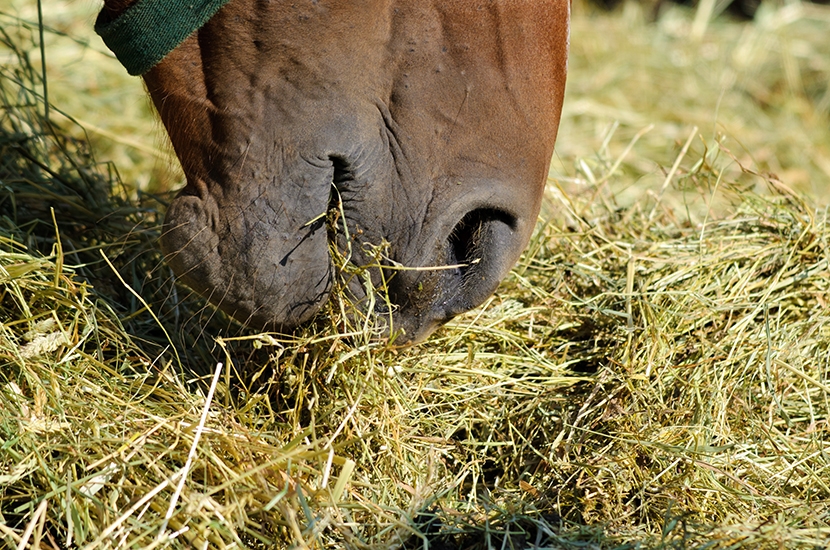‘We’re closed for lunch,’ said the farmer, sitting behind the counter of his farm shop with a scowl on his face, not eating anything.
‘Well then,’ said the builder boyfriend, ‘I’ll come back.’ And the BB went off to have a bite to eat at a nearby caff, where he texted me the news that he had yet to score, but was going to try again later.
There is no hay, or at least there is not enough hay in any given place to make farmers want to sell it.
While the human food supply managed to recover from last year’s panic-buying, animal forage was different, because there really is a limited supply of that, not just an imagined shortage.
Farmers only got one cut of hay last summer because of dry weather, which would have been bad enough. But then horse owners started hoarding hay as part of their Covid panic measures, when there was hardly enough stored up in barns to meet supply anyway.
This hoarding would not even have helped those who did it, because horse owners are notorious over-feeders. I’m guessing all that happened is that daft women fed too much hay to their fat horses at once and promptly colicked them and ran out.
Consequently, when we now ask all the local farmers who usually supply us, they won’t return our calls. When we ring hay merchants, they quote us the most ludicrous prices.
As our supplies ran low, I managed to open an account with a local haylage dealer who agreed to sell me ‘damaged’ bales. These turned out to be excellent apart from a small rotten patch on each bale which could be easily discarded. The builder boyfriend’s fat cobs wolfed them down and even my picky thoroughbred, Darcy, was delighted with the flavour.
But then the terrible day came when there was no more damaged haylage and I was down to ordering from one of the biggest country stores in Surrey, which was buying hay in from Lancashire at sky high prices.
When 15 bales arrived at our smallholding they were tied with bailing twine that had gone brown with age. ‘Where are these from?’ the BB asked, throwing a bale on his shoulder to hump it from the gateway to the hay store.
‘I think they’re from 1875,’ I said, looking at the dried up old hay glumly.
The only other option we could think of was a strange, tumbledown farm we know where the owner is ‘not all there’, to put it politely.
Every time the BB or I have popped into his place we have found it stacked with more animal feed and forage than anywhere else. And the reason for this becomes apparent when you try to buy something.
Although the barns are full to the rafters with produce, when you enter, the farmer and his mother appear out of nowhere to discourage you from buying in the strongest possible terms.
They either tell you something is not for sale, or else they accuse you of stealing and throw you out as soon as you approach an item to look at it.
The builder b has had some success at this place by charming the farmer and his mother with his banter. By talking to them for ages about something unrelated to their stock, he has managed to pay for something and put it into his car without them noticing.
It is easier if the farmer is there on his own. If his mother is there, prowling the aisles on her walking stick with a look that says ‘I know your game!’, the customer has no chance.
So the BB drove over there on a mission and as he pulled into the dilapidated farmyard, he could indeed see that the open barns were packed to bursting with hundreds upon hundreds of bales of premium-quality hay. The farmer was sitting behind the counter with his mother, so he was met with total defiance.
‘We’re closed for lunch,’ scowled the farmer, hair standing on end, and his mother yelled: ‘You heard him! We’re having our lunch!’
The BB held his nerve and repaired to a nearby caff, texting me about the delay. When he went back at 2.30 p.m. the counter was vacant. The farmer and his mother had done a bunk. But he wasn’t giving up. Wandering around, he found a farm worker. Somehow, he managed to persuade him to let him put six hay bales into the back of his car, and on to the roof.
Then he pushed cash into the farm worker’s hand and told him to deposit it in the till. Finally, he instructed him not to say anything about any of this to the farmer or his mother. We don’t want the poor chap to lose his job.







Comments